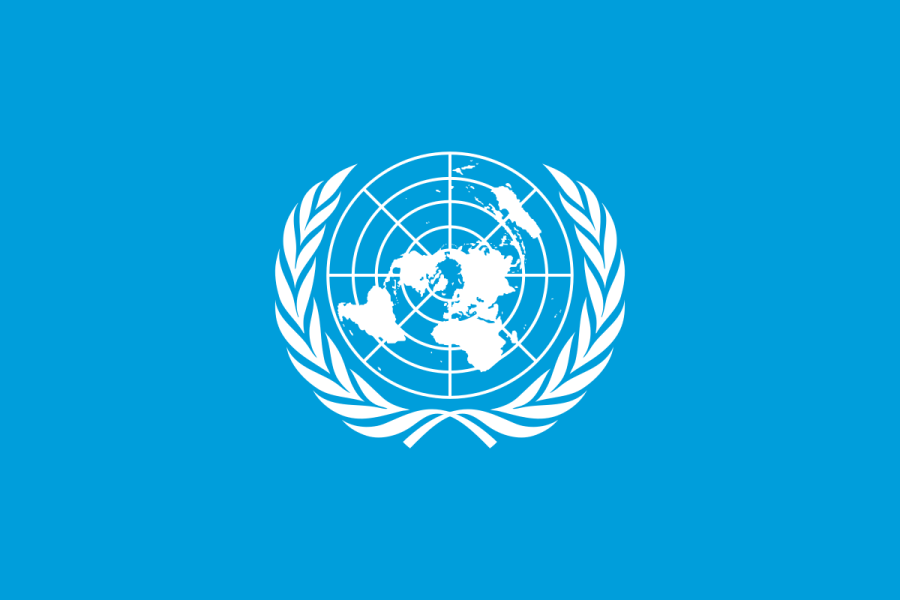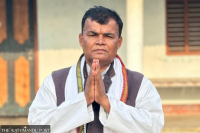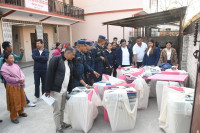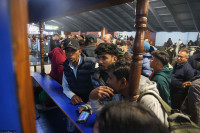National
NHRC reform in limbo despite warnings from UN and rights bodies
Nepal government dilly-dallies even as UN periodic review looms in January.
Binod Ghimire
During an accreditation review last year, Nepal’s efforts in drafting a new law to enhance the National Human Rights Commission’s effectiveness and independence was a primary factor that helped with the retention of the body’s global “A” status.
The Global Alliance of National Human Rights Institutions’ subcommittee on accreditation (SCA) acknowledged the efforts to draft legislation to improve and enhance the commission’s effectiveness and independence, which aligns with the Paris Principles. During the review in October last year, the constitutional human rights watchdog cited a bill to this effect.
However, eight months down the line, the government has yet to finalise the bill. Officials have no idea when the bill will be finalised and registered in Parliament. Top Bahadur Bista, undersecretary at the Law and Human Rights Division in the Prime Minister’s Office, said they have sent two bills—one related to the commission and the other to its staff—to the Ministry of Law, Justice and Parliamentary Affairs for consent. “We are yet to hear from the ministry,” he said. “The bill is a priority.”
As per the SCA, the new commission law must ensure that the selection and appointment process complies with the Paris Principles by being broad, transparent, participatory, while preventing conflict of interest.
Adopted in 1993 by the United Nations General Assembly, the Paris Principles set six criteria that national human rights institutions must follow. These include autonomy from the government, independence guaranteed by the constitution, adequate competence, pluralism and the availability of resources and powers to carry out investigations.
Similarly, the SCA said the endorsed law must ensure the commission’s financial autonomy, ensuring that it doesn’t need approval from the Ministry of Finance before accepting donor funding. Pluralistic composition with at least two women, tabling the commission’s report directly before parliament rather than through the President (which is in practice now) were the other legal changes the SCA had suggested.
A joint team comprising representatives from the commission, the prime minister’s office, and the law ministry drafted a bill and forwarded it to the government last year.
Shyam Babu Kafle, an undersecretary at the commission, said the law is not a priority for the government. “We had submitted a draft bill in September last year after the Cabinet consented to include the staff management part in a single bill. But the Prime Minister’s Office split it into two separate bills, delaying the process,” he said.
Until the SCA’s review, the leadership of the constitutional human rights watchdog was also advocating for the bill’s registration in Parliament. It has stopped raising the issue after the “A” status was retained, according to an official at the commission.
Not just the SCA, the need to revise the NHRC Act (or bring a new law) to ensure full autonomy and plurality in appointments was strongly raised in the third cycle of the United Nations Universal Periodic Review (UPR) in January 2021. At least 10 countries, including Australia, India, Pakistan, and Sri-Lanka, had recommended that Nepal take steps to ensure the effective functioning of the commission under the Paris Principles, including through financial autonomy of the commission and implementation of its recommendations. Nepal had agreed.
However, successive governments have failed to live up the commitment. “This issue is sure to be raised in the fourth cycle of the periodic review,” said Yagya Adhikari, a joint secretary at the commission. “The chances of the bills getting through Parliament before the upcoming review are poor. How will Nepal defend itself?’
The commission has highlighted the sluggish progress in the law in its shadow report submitted to the UN Human Rights Council on Thursday. Different constitutional bodies and the non-government agencies submit shadow reports showing the country’s human rights situation, in addition to the one by the government.
The fourth cycle of the UPR will be held in Geneva in January next year.




 23.27°C Kathmandu
23.27°C Kathmandu















